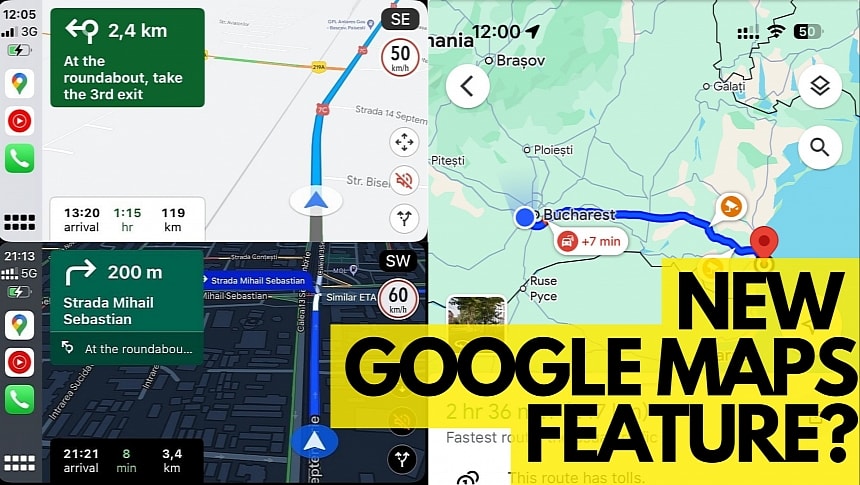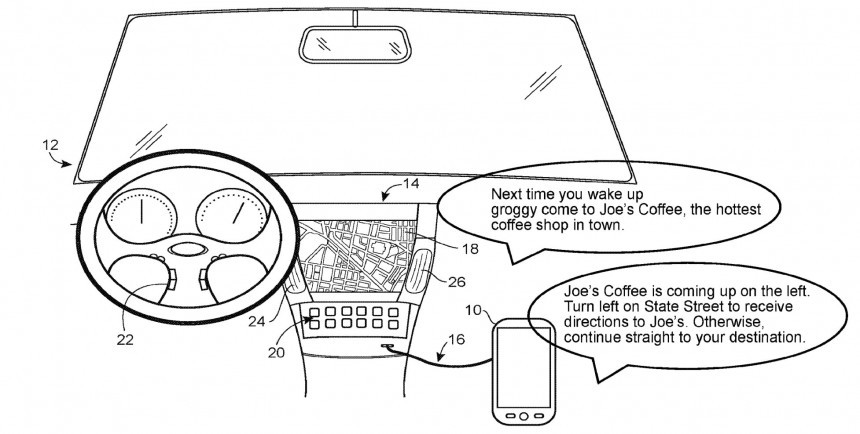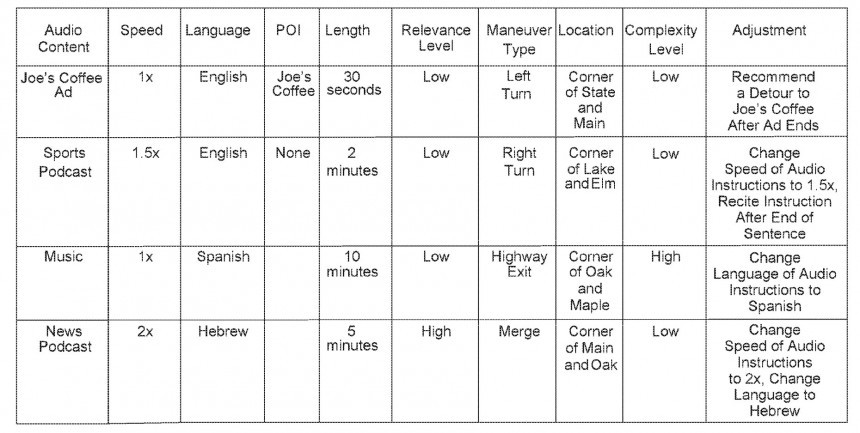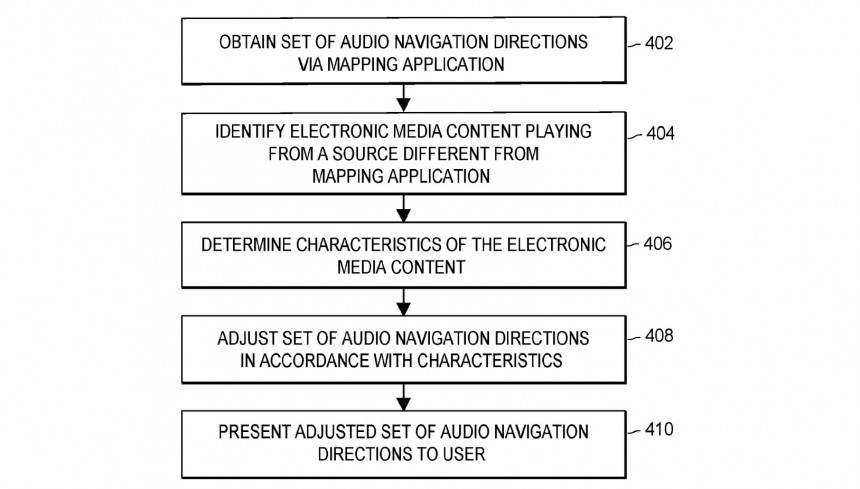Google Maps is already the biggest name in the navigation space, but the search giant doesn't want to rest on its laurels and is already working on several innovative updates. Google Maps has made significant progress, especially in cars, where it benefits from deeper integration, such as when running on Android Automotive, as it can access vehicle data for more advanced capabilities.
The application can monitor the vehicle battery level and automatically search for compatible and available charging spots, suggest routes, and reconfigure a journey to ensure the range to arrive at the destination safely.
One of Google's latest ideas is "content-aware navigation instructions," which includes new-generation features and an ugly side that many users are likely to hate.
Content-aware navigation refers to turn-by-turn guidance offered to users based on the content the navigation application can process in addition to the destination provided by the user. In Google's case, the system can be used in cars where drivers are provided with more than one source of audio content.
Google says the struggle starts when Google Maps tries to speak navigation instructions in a car where other audio is playing. For example, hearing the next-turn information could be more difficult if the driver listens to the radio, YouTube Music tunes, a podcast, or an audiobook. Eventually, the navigation experience is impacted, and drivers blame Google Maps for not getting them to the destination as conveniently as they expected.
Google Maps has already tried to deal with this shortcoming when running on Android Auto, CarPlay, or a phone connected to the vehicle via Bluetooth. The application automatically adjusts the volume of the playing audio when speaking navigation instructions. However, Google says this isn't enough.
The content-aware navigation system would allow Google Maps to wait for the right moment to speak navigation instructions. This means the application would be smart enough to determine when it can speak voice guidance so that you can hear the instructions clearly.
To do this, Google Maps could either be connected to the audio source directly and receive audio fingerprint data or try to obtain it automatically by scanning certain segments and analyzing them online (much like Shazam works—Google Maps would hear what is playing in the car, search online for information, determine what you're listening to, and calculate how long it has to wait for the next moment of silence to speak navigation instructions).
Google Maps would be able to determine the next break in the audio content regardless of what you listen to. However, if the application can't wait that long to offer next-turn information, it could still use the system implemented today, which involves lowering the audio volume during navigation guidance.
Google Maps could get even smarter than this. If you listen to a news podcast in a different language, the application can determine the language and configure navigation to speak the same language. This means that if the application offers navigation guidance in English but you listen to a Spanish news podcast, Google Maps can automatically switch to Spanish.
The application can also determine the playback speed and adjust how fast it speaks navigation guidance.
The ugly side comes down to the ads you hear on the radio.
Google Maps can listen to the same ad, extract location information, and offer to reroute navigation so that you can drive to the address you heard on the radio. Imagine you listen to a McDonald's ad where the fast-food chain advertises a newly opened location. Google Maps can determine where it is and recommend a detour to its location after the ad ends. It's easy to see how this feature would become intrusive, as Google Maps would pave the way for a more aggressive advertising engine that would eventually impact the driving experience.
However, Google developing this feature could also help how users interact with Google Maps, mainly when listening to music or podcasts. The search giant explains that users would always be in full control of the navigation experience. For example, if the application suggests a detour based on an ad played on the radio, Google Maps would clearly display this option on the screen and wait for the user's consent before rerouting to the new location.
It's important to understand that Google's idea is still in the patent stage, and as with everything else in this phase, it may never come to fruition. Companies worldwide sometimes patent their ideas to protect them from others, but an application isn't by any means confirmation that a new feature is coming. It could be an indication of how a parent company wants to improve its products.
You can find the full patent document in the box after the jump if you're interested in all details, including a more technical description of how Google Maps would extract the required content to adjust its navigation instructions.
One of Google's latest ideas is "content-aware navigation instructions," which includes new-generation features and an ugly side that many users are likely to hate.
Content-aware navigation refers to turn-by-turn guidance offered to users based on the content the navigation application can process in addition to the destination provided by the user. In Google's case, the system can be used in cars where drivers are provided with more than one source of audio content.
Google says the struggle starts when Google Maps tries to speak navigation instructions in a car where other audio is playing. For example, hearing the next-turn information could be more difficult if the driver listens to the radio, YouTube Music tunes, a podcast, or an audiobook. Eventually, the navigation experience is impacted, and drivers blame Google Maps for not getting them to the destination as conveniently as they expected.
The content-aware navigation system would allow Google Maps to wait for the right moment to speak navigation instructions. This means the application would be smart enough to determine when it can speak voice guidance so that you can hear the instructions clearly.
To do this, Google Maps could either be connected to the audio source directly and receive audio fingerprint data or try to obtain it automatically by scanning certain segments and analyzing them online (much like Shazam works—Google Maps would hear what is playing in the car, search online for information, determine what you're listening to, and calculate how long it has to wait for the next moment of silence to speak navigation instructions).
Google Maps would be able to determine the next break in the audio content regardless of what you listen to. However, if the application can't wait that long to offer next-turn information, it could still use the system implemented today, which involves lowering the audio volume during navigation guidance.
The application can also determine the playback speed and adjust how fast it speaks navigation guidance.
The ugly side comes down to the ads you hear on the radio.
Google Maps can listen to the same ad, extract location information, and offer to reroute navigation so that you can drive to the address you heard on the radio. Imagine you listen to a McDonald's ad where the fast-food chain advertises a newly opened location. Google Maps can determine where it is and recommend a detour to its location after the ad ends. It's easy to see how this feature would become intrusive, as Google Maps would pave the way for a more aggressive advertising engine that would eventually impact the driving experience.
It's important to understand that Google's idea is still in the patent stage, and as with everything else in this phase, it may never come to fruition. Companies worldwide sometimes patent their ideas to protect them from others, but an application isn't by any means confirmation that a new feature is coming. It could be an indication of how a parent company wants to improve its products.
You can find the full patent document in the box after the jump if you're interested in all details, including a more technical description of how Google Maps would extract the required content to adjust its navigation instructions.





















